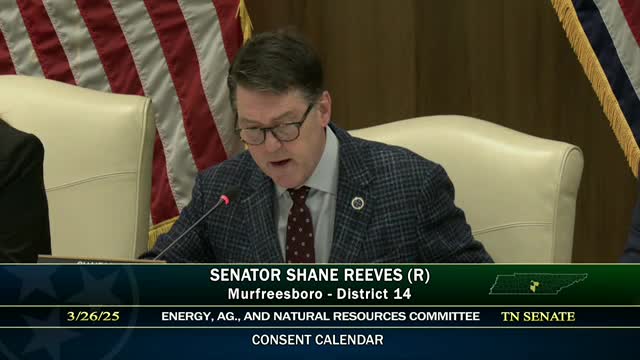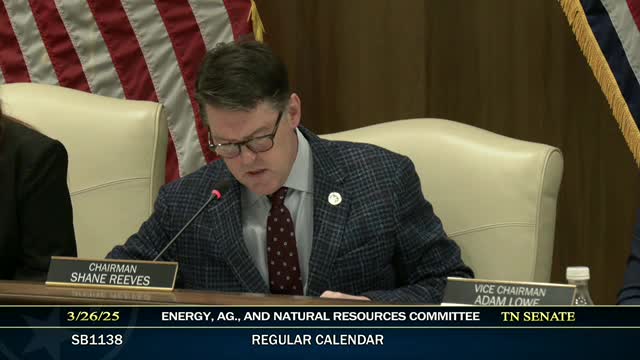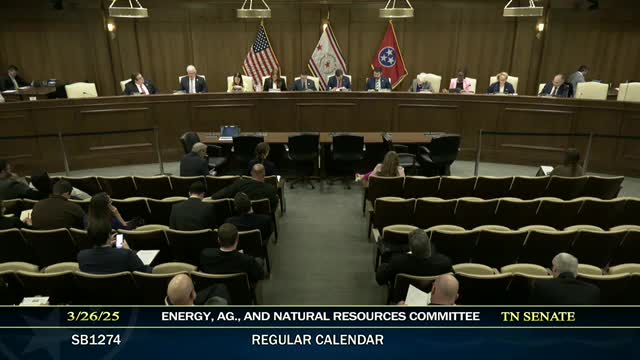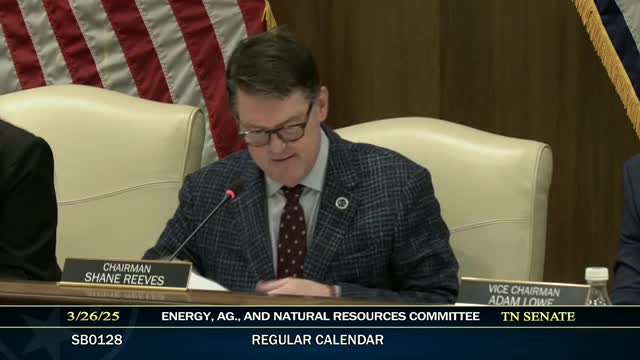Article not found
This article is no longer available. But don't worry—we've gathered other articles that discuss the same topic.

Committee votes: quick roundup of bills advanced or acted on by the Senate Energy, Agricultural and Natural Resources Committee

Committee advances bill requiring cities to allow connections to long‑standing sewer lines outside city limits

Grundy County asks legislature for local control of biosolids; TDEC warns of legal limits

